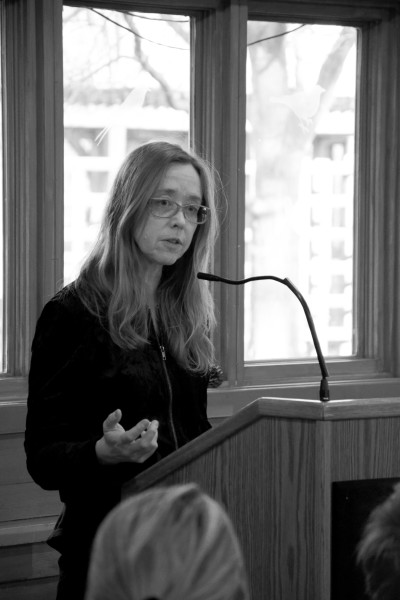Q: What was your role in the Surrealistförlaget group?
A: It’s called The Surrealist Group of Stockholm (Surreslistgruppen I Stockholm). I wasn’t one of the founding members, but I joined them in an early state. We did a lot of experimental things, in life as well as in the arts.
Later, I left the group, since groups like this tend to be secteriscit, and I didn’t like the lack of a feministic practice and point of view in surrealism. I also started to believe that reality is more surreal than superreality. I’m still friends with the group, but I am not a member anymore.
Q:Where do you get your inspiration?
A: I take inspiration from my everyday life and my autobiography (that tends to be constant drama), and I get a lot of inspiration from my animals (horses, dogs, cats, maybe even the children count in here). Then I put it into a homemade philosophical context. I also get inspired by sh*tty B-movies and American “documentaries” on trashy murders and similar. Sometimes even works of quality, like Werner Herzog’s film Grizzly Man or Valerie Solanas’ Scum Manifesto.
Q: How do you process through a piece of writing?
A: Here is an example from my speech at Gustavus, where I described the process of my latest book (to be released this fall):
I decided to start writing about horses. The feeling of being with a horse, the strange dance of riding a horse, thinking together in movement with a creature you can’t – and still in a way can – communicate with.
After a while I, for some reason, started writing of the intestines of horses. And then, parasites. I realized that my horses were trojan horses.
In a quite late state I started asking myself: What is this book really about? And then I got the message. It was about destroying systems from within.
Then I started writing about mistresses developing into stalkers, like Glenn Close in Fatal Attraction, who is trying to break down the concept of marriage. And I started to study hacking.
The hacker’s trojan is a metaphor, but also an efficient weapon. I created an army of female hackers and mistresses and lonely, crazy women that were going to crack the patriarchal routines.
In Sweden, we have an expression: The Woman’s Trap. I’v learned that you have something similar – the Parental Trap. The womans trap in Sweden doesn’t have to be a situation of taking care of children – it can be any situation where women are silently or openly suppressed.
I realized that the woman’s trap is a trojan horse. Suddenly, Hackers was a subversive book on feminism.
From beauty to politics, you could say. From the nice and innocent behavior – studying horses – to some kind of rebellion. This is how it goes – the poetry travels through ideas, I go with it. It is research about the secrets of the inner life of society.
Q: What is your advice for writers on campus, especially from your international perspective?
A: Never compromise. Stay angry. And never think that poetry has to be understood. No one understands you. You are lonely in space. You don’t write poetry to make friends.
